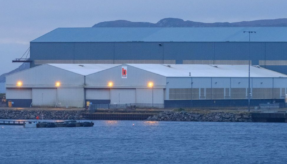
BAE Systems has been awarded a $60 million contract from the Army Contracting Command – Rock Island under the Cornerstone Other Transaction Authority to develop certain types of next-generation, radiation hardened by design (RHBD) microelectronics leveraging Intel Corporation’s commercial foundry, Intel Foundry Services.
The main goal of the program is to expand onshore access to state-of-the-art microelectronics technology for the United States government and aerospace community.
Currently, this type of technology is available through limited sources in the US. This leads to supply chain challenges and time lags for the delivery of next-generation microelectronics designed for environmentally rugged missions like those occurring in space.
With this contract, BAE Systems’ FAST Labs research and development organisation will harness Intel’s commercial foundry process to build a new design library that can be used to develop advanced, high-reliability microelectronics and expand the domestic supply of this technology for the defence and aerospace community.
“Radiation hardened electronics are highly specialised mission critical technology,” said Chris Rappa, Director at BAE Systems’ FAST Labs. “Leveraging Intel’s commercial foundry to manufacture this technology can speed up the production of next-generation technology and help resolve supply chain challenges so we can maintain our country’s technological edge.”
This award opens a roadmap for the US defence and aerospace community to access more advanced process nodes for the development of Application Specific Integrated Circuits (ASIC). Currently, development of RHBD ASICs uses a 45nm process, but with this contract there is potential to deploy more advanced technology nodes and enable more functionality and faster processing in smaller areas, at lower power.
In addition to working with Intel Foundry Services, BAE Systems will execute on this program through collaboration with a team composed of Cadence Design Systems, Carnegie Mellon University, Movellus, Reliable MicroSystems, and Sandia National Laboratories.
If you would like to join our community and read more articles like this then please click here







